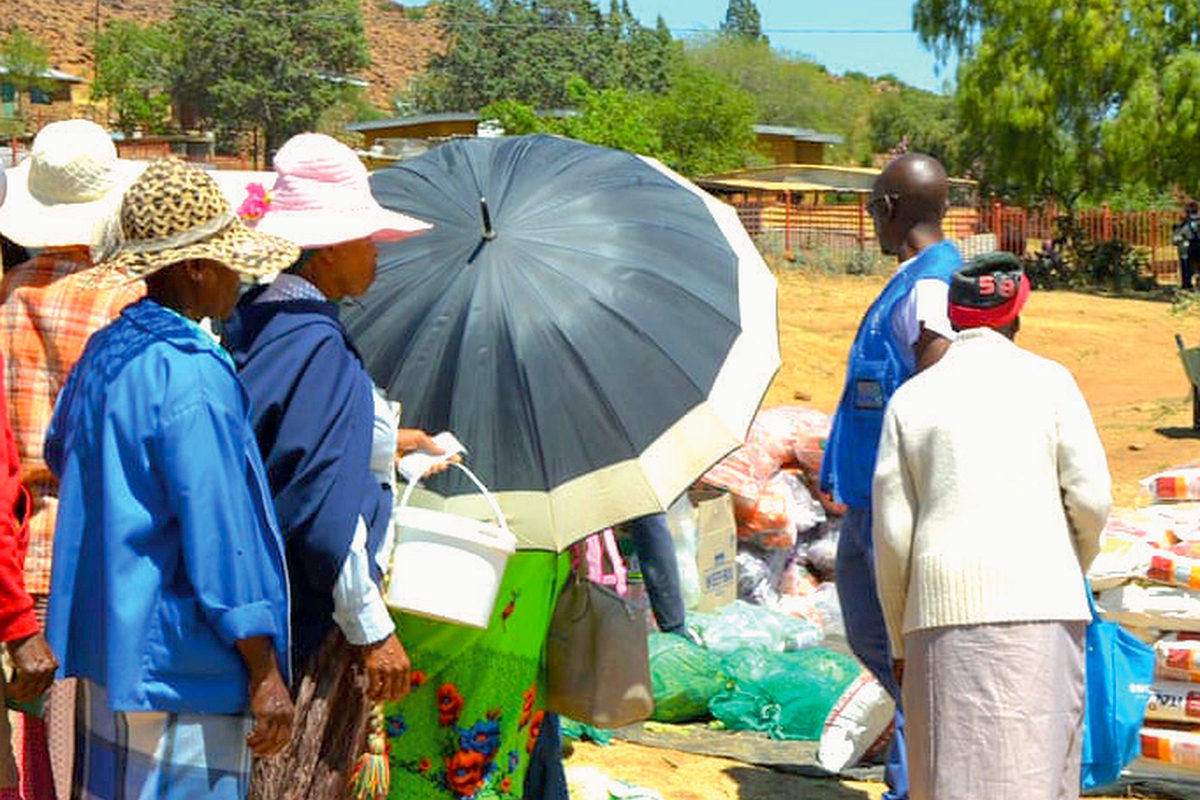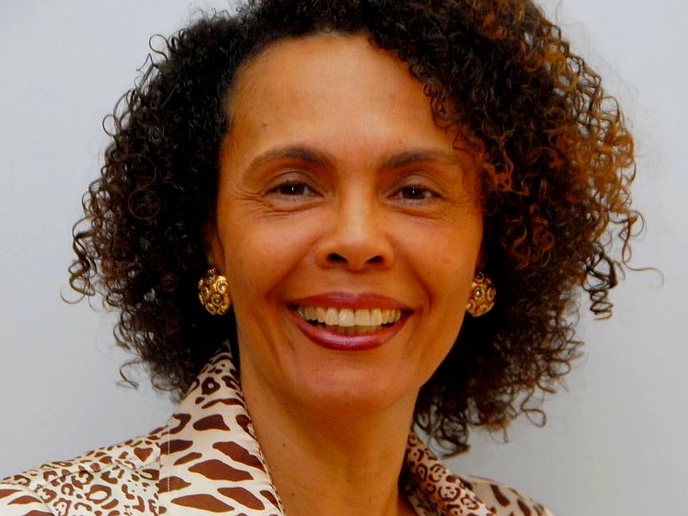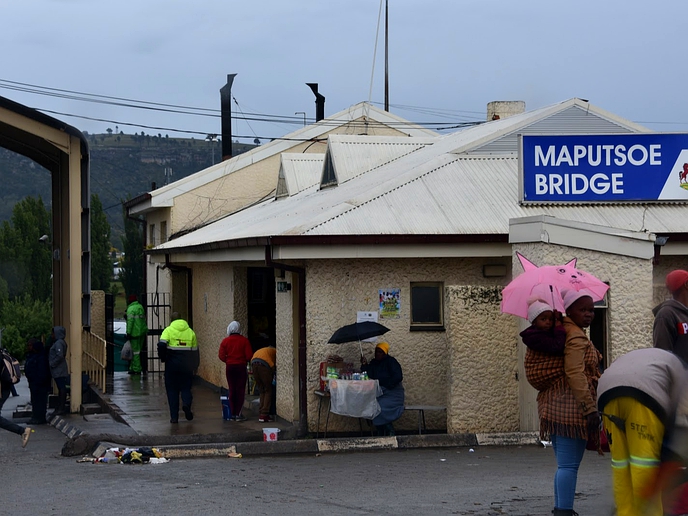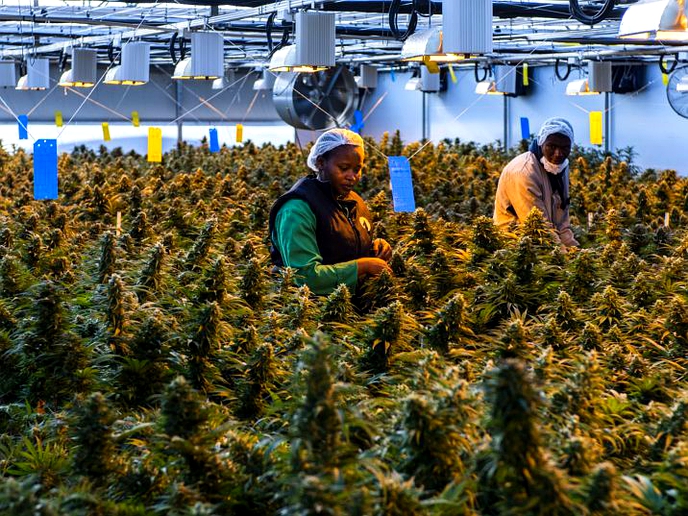MASERU - The economy of Lesotho has plummeted with some 900 thousand people across the country living in poverty due to the Coronavirus pandemic, the United Nations has said in a report.
business
July 16, 2020
NEO SENOKO AND LINEO MABEKEBEKE
3 min read
900,000 Basotho in dire poverty

Scores of Basotho line-up for food donations
The report was produced by the office of the Resident Coordinator in Lesotho in collaboration with humanitarian partners.Titled the Covid-19 situation update, the report states that the pandemic has directly affected the economic and food security situation of the country, and this has been exacerbated by the closure of border crossings, reduced international movements and reduced remittances due to the global economic slowdown.
In 2019, food insecure population was estimated at 433,410 in rural areas and 74,715 in urban areas.But the United Nations has projected in the report that the number of food insecure households from the rural population is likely to surge from 433,419 to 720,000.In urban areas, the number of food insecure households is likely to increase from the previous 74,715 to 179,287 with the inclusion of people who have lost their usual income.
The projected surge in rural areas, the UN says, is due to the number of migrants returning from South Africa, the decline in agricultural labour opportunities and the loss of remittances following the lockdown.That means Covid-19 has increased the number of affected populations to 899,000, according to the report.
“The Covid-19 pandemic aggravated the health, WASH, protection, nutrition and food security situation of the drought-affected people in Lesotho. “Available reports indicate that over a million people (49.7 percent) of Lesotho’s population live below the national poverty line. Lesotho faces chronic food insecurity and hunger. One-third of children under five years of age are stunted and Neonatal, infant as well as under five mortality remain high,” the UN said in a Covid-19 update report released on Monday.
To support the food insecure urban population, WFP will complement the government’s horizontal expansion of social protection safety net (Public Assistance) outlined in the Government’s policy statement in response to the pandemic which includes targeting vulnerable children, the elderly, people with disabilities and those in the informal sector.
Around 4,250 (about 17,000 beneficiaries) vulnerable households in urban areas will be targeted within the Mohale’s Hoek, Mafeteng, Quthing and Qacha’s Nek districts. The targeted households will be provided with USD55 per month so that they can meet basic household needs.
To further address the challenge of increasing poverty and vulnerability, the UN reportsnbthat the government is building a strong shock responsive social protection system. According to the report, currently the government spends about 4.6 per cent of its GDP on social support and this is well about 1 to 2 percent spend by most developing countries.
Enjoy our daily newsletter from today
Access exclusive newsletters, along with previews of new media releases.
In October 2019 the Government of Lesotho declared a drought emergency in the country due to the late onset of rains. To address the needs of the drought-affected, the United Nations in Lesotho along with the Humanitarian Country Team (HCT) members launched a flash appeal of USD 33.7 million in the sectors of health, WASH, nutrition, food security, livelihoods protection, and education. In May, Lesotho registered its first confirmed case of COVID-19 and as of today, Lesotho has reported over 250 cases and three
deaths. The country is already implementing some public health interventions aimed at prevention and control of the disease. One of these interventions was the implementation of a nationwide lock-down (limiting movement and access to some nonessential services) in terms of the Public Health (COVID-19) Regulations, 2020.
The lockdown was effected countrywide from March 29, with many restrictions having been lifted by May 5. The lock-down negatively affected many livelihoods for both urban and rural households across the country and it is anticipated that vulnerable groups will be the most hit by these measures. An estimated 10 000 Basotho came back into the country through official points of entry and a significant number of people came through illegal crossing points just before the lockdown was operational and have continued to pour into the country at every opportunity.






